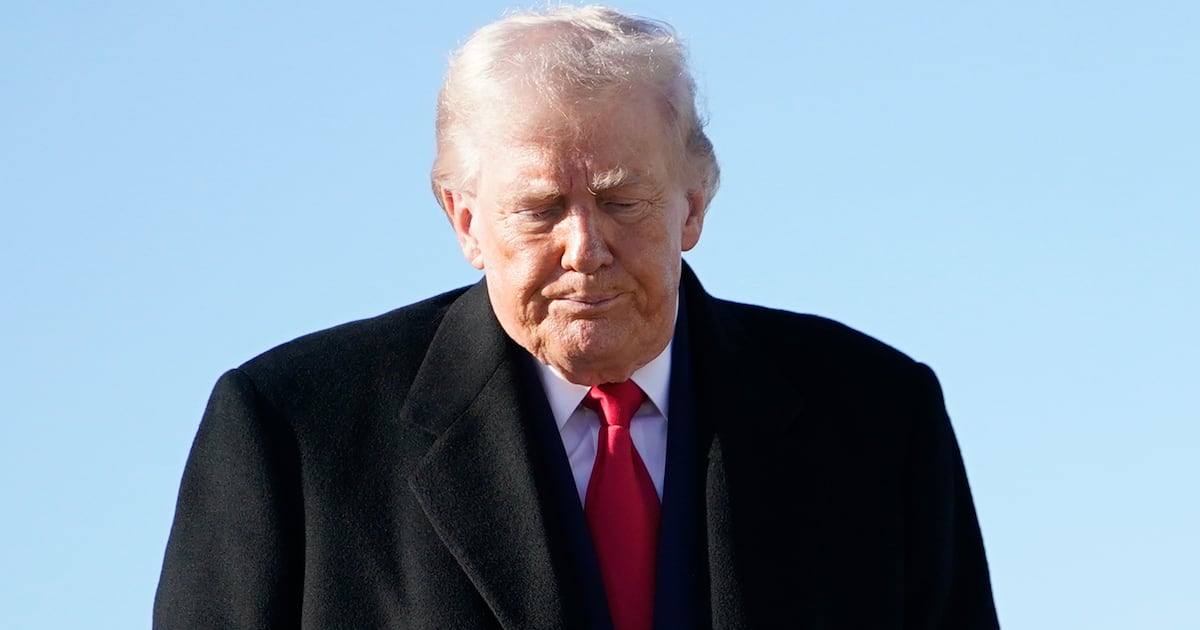The Democrats’ dilemma on what to do about Neil Gorsuch is pretty simple: to filibuster or not to filibuster?
To #teamspine progressives, it’s no dilemma at all. Filibuster all these people. Half of me agrees. But another half of me looks around the corner and sees some downsides. And this tension gets to the heart of what it means to try to be a member of a responsible political party in this polarized age.
The filibuster argument is as follows, but before I lay it out, here are the numbers and the procedural issues at hand. There are 52 Republican senators, and 48 Democrats. The filibuster rule requires that a super-majority of 60 senators vote affirmatively to bring a piece of legislation (or a Supreme Court nomination) to the floor, which means that eight Democrats would have to vote with the Republicans, who will presumably vote en bloc for Gorsuch. Those eight could agree to vote to cut off debate, but then vote against the nomination itself, which requires only a simple majority of 51 to pass.
So, it’s generally thought, it might well be that eight Democratic senators from red states—and there are 10 right now who face reelection in 2018—might vote to end debate but still vote no on the final vote, meaning that they could say they voted against Gorsuch in the end even though they voted to permit his nomination to get to the Senate floor.
The inside thinking is that if the Democrats do filibuster, Mitch McConnell might simply change the rules and decide that a Supreme Court nominee is no longer subject to a filibuster. He could do this more or less unilaterally, because former Democratic Senate leader Harry Reid did the same thing a few years ago with regard to lesser federal court nominees. Reid said at the time that he was reinterpreting Senate Rule 22 to exclude federal judicial nominations. McConnell could do the same with respect to High Court nominees—except that he’d need to bring that to a vote, in which case a simple majority of 51 senators would be needed to change the rule. This would constitute voting to end the filibuster, in essence.
Now, since there are 52 Republicans, you might think McConnell getting 51 votes for this move would be simple. But there are indications it might not be. Some old-line senators, in love with the institution and its traditions and all that, might be loath to get rid of the filibuster. The chief suspects here are Susan Collins, maybe Lisa Murkowski, maybe a multi-decade veteran like Orrin Hatch. My conversations in recent weeks with some Democratic senators and staffers indicates some measure of confidence on their parts—perhaps misplaced, given the stakes here—that McConnell might have a hard time getting 51 votes; also that maybe McConnell himself is hesitant to pull this move (if he really wanted to, after all, he could have tried it in January, right after the current Congress was seated).
So some Democrats feel: We can filibuster Gorsuch, and McConnell won’t pull this particular trigger because he may well not have 51 votes.
All that said, back to the case for filibustering: God knows, it’s what the Republicans would do. They already did it, and worse. What they did to Merrick Garland was execrable. Totally indefensible. These hearings shouldn’t even be happening, because Associate Justice Garland should be on the bench. There’s no asterisk in the Constitution about a president’s eighth year. There was no discernible principle in what the GOP did last year. There was only a calculation about power: The executive and legislative branches see-saw back and forth between the two parties, but the judicial branch has been the Republicans’ since the mid-to-late 1980s, and it’s been crucial to establishing and maintaining conservatism in many aspects of American life, and Republicans are desperate to keep it that way.
So, the hell with them. If one team’s fighting with a bazooka, the other shouldn’t fight with a pop gun. And maybe, just maybe, if the Democrats hold the line on nominees like Gorsuch who are obviously, however presentable and pleasant-seeming, quite far right in their views, they’ll force President Trump to nominate someone eventually who might be a little more centrist.
It all makes sense to me, some days. Yet other days I wake up and think: But what if McConnell has those 51 votes and can dump the filibuster, not only on Court nominations but on everything?
That puts the Democrats, and I’d say the country, in a real danger zone. If there’s no filibuster, there’s no telling what McConnell and the GOP can pass with a simple majority of 51. Imagine what they’d shove through on environmental policy, labor policy, the tax code, and more. And sensing that the unpopular Trump might well be a one-termer, they’d rush to pass stuff like mad before the last copter left Saigon, so to speak.
The filibuster is a dubious thing in general in that it gives a minority the power of a majority. If we had two responsible parties, I’d say do away with it. But we don’t. And for now, the filibuster is the Democrats’ last line of defense. If they do something that makes McConnell decide to go nuclear and do away with it, we could have not just a bad Supreme Court justice, but bad law in a host of areas.
The Republicans have demonstrated again and again that they’ll risk the republic for the sake of political power. What they did on the debt ceiling is the main example. The insane number of holds they placed on Obama judicial and bureaucratic nominees is another. What they’re about to do on health care is yet another. Health care should be subject to the 60-vote rule, which the Democrats followed in 2010; but watch, the Republicans are going to pull some parliamentary shenanigans—which may end up including them just ignoring the ruling of the Senate parliamentarian—to get their bill through with a simple majority (“reconciliation”).
Should the Democrats reduce themselves to that level, especially when doing so might open the floodgates to a raft of reactionary legislation? It’s a tough call. It’s awful what the GOP did last year, but Trump did win, and the new ninth justice is going to be conservative to one degree or another. The question then becomes, did getting Gorsuch’s scalp, if indeed they do that, help their cause? We can’t know.
What I think we do know is that if the Democrats filibuster Gorsuch, they’re probably going to have to filibuster the next guy, too, and maybe the next one after that. In the age of polarization, this never ends.






